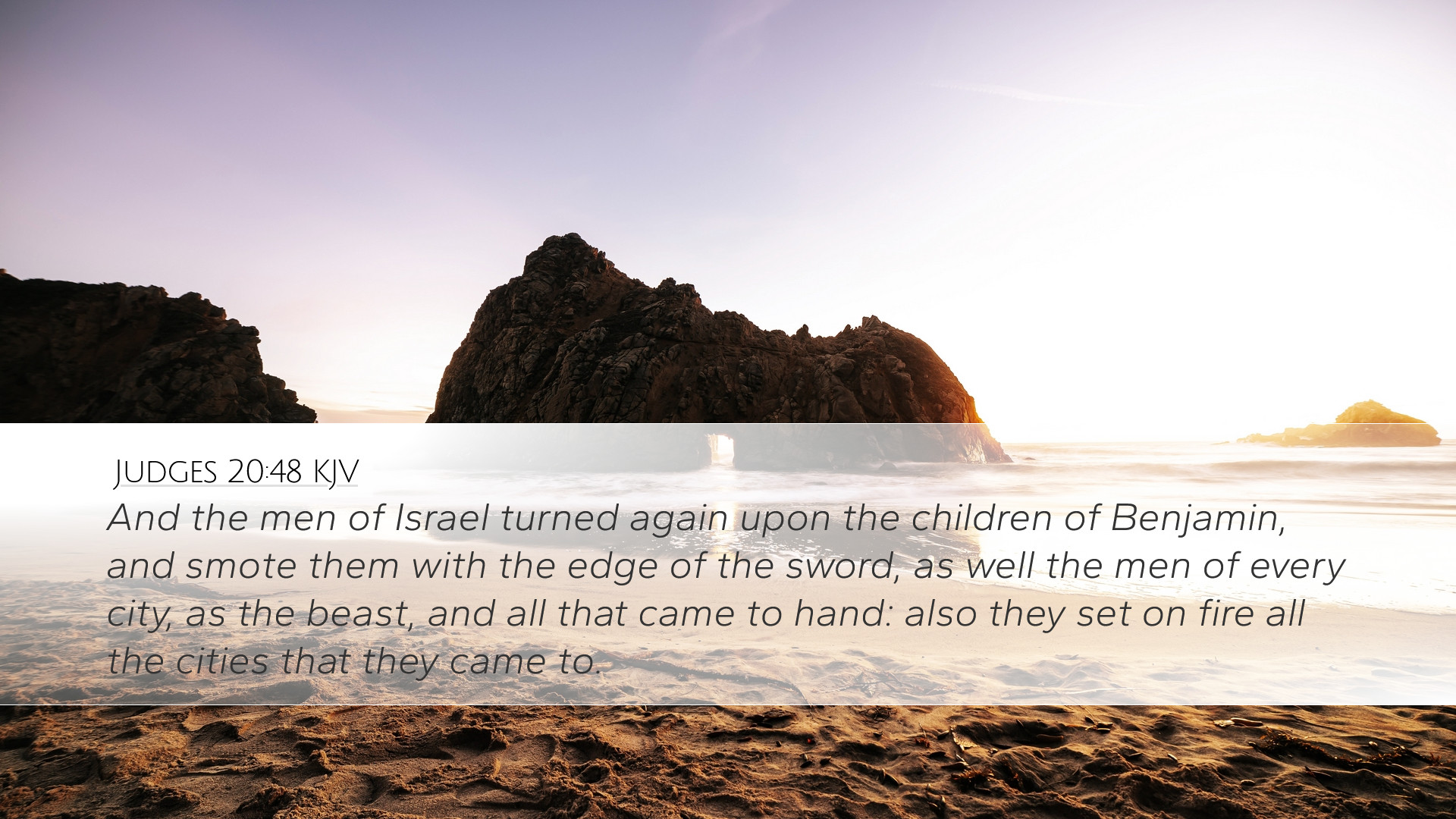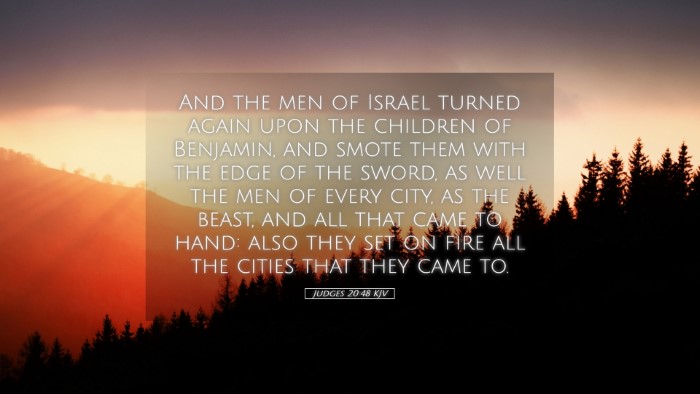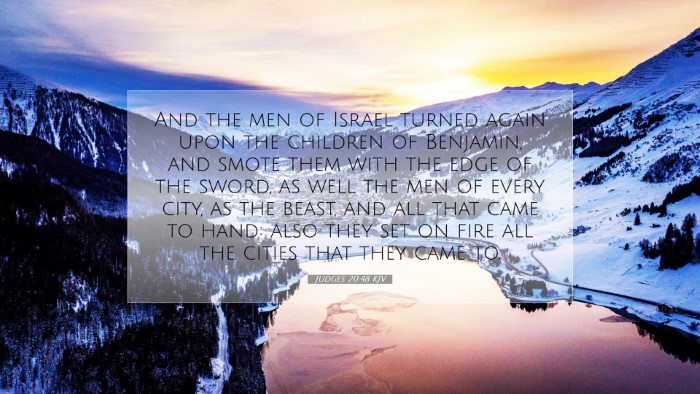Commentary on Judges 20:48
Verse Context: Judges 20:48 states, “And the men of Israel turned again upon the children of Benjamin, and smote them with the edge of the sword, as well the men as the beasts, and all that came to hand: also they set on fire all the cities that they came to.” This verse concludes a tragic chapter in Israel's history marked by civil strife and divine judgment.
Overview
This passage serves as a grim reminder of the consequences of moral decay and disunity among the tribes of Israel. The context surrounding this verse highlights a severe conflict initiated by the gang rape and murder of a Levite's concubine, which led to a call for justice against the tribe of Benjamin. In this commentary, we will explore insights provided by various public domain commentaries to delve deeper into its meanings, implications, and applications.
Analysis of Key Themes
- Moral Decline: The events leading to this confrontation underscore a significant moral decline in Israel, where everyone did as they saw fit (Judges 21:25).
- Divine Justice and Judgment: The warfare against Benjamin is depicted not merely as a civil war, but as an act of divine justice where the sinful actions of Sodom-like behavior warrant severe consequences.
- Human Suffering: The destruction of cities and the slaughter of innocents reflect the grim realities of war and the pervasive consequences of sin on all levels of society.
Insights from Commentaries
Matthew Henry's Commentary
Matthew Henry comments extensively on this passage, shedding light on the grim nature of Israel's conflict with Benjamin. He emphasizes the tragedy of brother fighting against brother, highlighting the loss of kinship and the severe consequences of sin. Henry notes that this event demonstrates the seriousness with which God views sin within the community.
He observes that the competitive aggression shown by Israel towards Benjamin was fueled by their grievance, but it also reflects a disconnection from God’s principles. Henry elaborates that the Israelite victory was bittersweet, as it stemmed from the deeper issue of collective sin and rebellion against God's order.
Albert Barnes' Notes on the Bible
Albert Barnes provides a detailed explanation of the actions taken against Benjamin. He describes how the Israelites were driven by righteous indignation but cautions that such passions must always be tempered by wisdom and guided by principles of justice. Barnes underscores that the annihilation of women, children, and livestock represents the utter devastation that can arise from unchecked conflict.
He also highlights that the destruction of the towns of Benjamin serves as a symbolic measure of the eradication of evil among God’s people and urges readers to consider the broader implications of such conflict in the community of faith.
Adam Clarke's Commentary
Adam Clarke takes a nuanced perspective, bringing attention to the historical and cultural context of this passage. Clarke remarks on the scale of violence undertaken by the Israelites, suggesting that such violent retribution was seen as necessary in their mindset during that period. He warns about the dangers of overstepping in judgment and losing sight of God’s mercy amidst justice.
Clarke's commentary underscores the profound impact of sin, which resulted not just in death but in communal trauma that would echo through future generations. He links the passage to broader theological themes such as atonement, repentance, and the necessity of warning against collective sin.
Application for Pastors and Theologians
The events in Judges 20:48 offer rich lessons for pastors, students, and theologians in grappling with issues of sin, justice, and community responsibility:
- Understanding Sin: This passage challenges church leaders to address sin within their communities honestly and courageously. It is a call to be vigilant against moral decay and the ramifications that can arise from ignoring it.
- Promoting Reconciliation: The destructive outcome of this conflict demonstrates the necessity of reconciliation among those who are in Christ. Modern churches must seek methods to resolve conflicts peacefully and with a spirit of understanding.
- Leading with Compassion: Though justice is an essential aspect of God's character, the execution of that justice must always be balanced with mercy. Church leaders should strive to reflect God's heart towards restoration rather than mere retribution.
Conclusion
Judges 20:48 serves not only as a historical account but also as a sobering reminder of the destructive power of sin and the fierce realities of conflict within a fallen world. Through insights drawn from Matthew Henry, Albert Barnes, and Adam Clarke, we gain a better understanding of the implications of this verse, not just for ancient Israel but for the contemporary church as well.
This commentary invites readers to reflect on the gravitas of collective sin, the importance of divine justice, and the ultimate need for foresight, unity, and moral uprightness in the community of faith.


